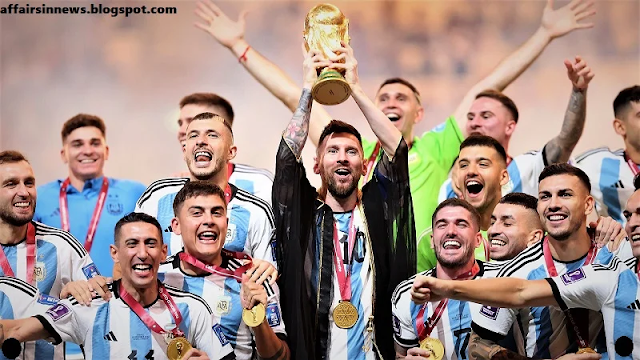Olympics corruption, two former ADK executives admit to bribery charges, president denies collusion
Two former executives of ADK Holdings, a major advertising company that was arrested on suspicion of bribery in a corruption case surrounding the Tokyo Olympic and Paralympic Games, have admitted to the charges, according to interviews with people familiar with the matter. In 2016, he asked Haruyuki Takahashi, a former director of the tournament organizing committee, to become an agent for the tournament sponsorship contract (78) = re-arrested on suspicion of bribery = It is said that he directly asked him. In addition, two former executives seem to have testified to the Tokyo District Public Prosecutors' Special Investigation Department that they reported the contents of their meeting with the former director to the company's president, Shinichi Ueno (68) = arrested on suspicion of bribery = but President Ueno denies collusion with the two former executives and denies the charges.
According to officials, two suspects have admitted to the charges: Shigeharu Hisamatsu, 63, a former senior managing executive officer of ADK's predecessor, Asatsu-DK, and Toshiaki Tada, 60, former general manager of the company's Olympic and Paralympic Games.
Before the Games, the organizing committee had contracted with Dentsu, a major advertising company, as a contractor for a dedicated agency to collect sponsors. However, other companies were able to become subcontractors of Dentsu as "sales cooperation agents" if the organizing committee and Dentsu agreed.
For this reason, the former managing executive officer and former general manager said that around '16, they asked the former director multiple times to become a sales partner agent. These inquiries to former directors are said to have begun around 14 years when the organizing committee was established, and the former board member is suspected of having persuaded Dentsu's Olympics executive to use ADK. ADK was approved as a sales partner in May '16.
ADK became a subcontractor of Dentsu under a contract with Park24 (Tokyo), a parking lot service company that was selected as a sponsor in July '18, and about 37.5 million yen was paid to ADK in December through Dentsu from the 1 billion yen sponsorship paid by Park24 to the organizing committee. Shortly thereafter, ADK sent about 20 million yen to a consulting firm (dissolved) where a golf buddy of a former board member was president, and the Special Investigation Department seems to see it as a reward for being able to become a subcontractor.
On the other hand, ADK transferred 500,000 yen a month in the name of sports marketing consulting fees to the consulting company "Commons" represented by a former director in July '13 ~ January this year, and the Special Investigation Division judged that about 27 million yen after November '17, when the statute of limitations for prosecution of bribery crimes (5 years) had not been established, was also a bribe.
According to the officials, the former director said he "did not know" about the transfer of about 20 million yen to the consulting company of the former president of a golf buddy, and denied bribery of about 27 million yen in consulting fees.
 |
| ADK HOLDINGS HEAD OFFICE BUILDING |
Olympics corruption - Former ADK executive "Consulting fee is a reward". Former board member has no record of activities?
Two former executives of ADK Holdings, a major advertising company that was arrested on suspicion of bribery in the corruption case surrounding the Tokyo Olympic and Paralympic Games, told the Tokyo District Public Prosecutors' Special Investigation Department that the purpose of the consultant fee paid to Haruyuki Takahashi (78) = re-arrested on suspicion of bribery = former director of the organizing committee of the Games was "a reward for the convenience related to the Olympic business." The total consulting fee amounted to about 50 million yen, but the former director explained that he did not receive consulting activities that were worth the amount.
According to people familiar with the matter, ADK's predecessor, Asatsu DK, signed a sports marketing consulting contract with Commons, a consulting company represented by a former director, in July 2013, and remitted a total of about 50 million yen per month until January this year. Two suspects, Shigeharu Hisamatsu, 63, a former senior managing executive officer of ADK, and Toshiaki Tada, 60, a former head of the company's Olympic and Paralympic Division, reportedly gave a statement to the Special Investigation Department about the remittance as a reward for the former director for facilitating Dentsu, a major advertising company entrusted by the organizing committee as a dedicated agency to collect sponsors.
On the other hand, the former board member is said to have denied bribery, claiming that the consulting fee was a fair consideration for the business, but two former executives also told the investigation that "the former director did not submit any research reports or other deliverables related to sports marketing." The Special Investigation Department has determined that about 27 million yen of the approximately 50 million yen in consulting fees since November '17, when the statute of limitations for prosecution of bribery charges (5 years) has not been established, constitutes bribes.
ADK became a subcontractor of Dentsu under a contract with Park24, a parking lot service company that was selected as a sponsor in July '18, and about 37.5 million yen was paid to ADK in December through Dentsu out of the 1 billion yen sponsorship paid by Park24 to the organizing committee. Shortly thereafter, ADK remitted about 20 million yen to a consulting firm (dissolved) whose former board member's golf buddy was president. The former board member is said to have said that he "doesn't know" about the transfer, but two former ADK executives have also admitted to the bribery nature of the funding.
In addition, two former executives seem to have testified that they reported their correspondence with the former board member by email or verbally to ADK president Shinichi Ueno (68) = arrested on suspicion of bribery = but President Ueno denies collusion with the two former executives and denies the charges.
Children who chose mascot "It's a pity that it is used for bad things" - Olympic corruption
Haruyuki Takahashi, 78, a former member of the organizing committee of the Tokyo Olympic and Paralympic Games, was rearrested on suspicion of selling stuffed toys for the Olympic and Paralympic mascots Miraitowa (Olympics) and Someity (Paralympics) on May 19. For the first time in the history of the Olympic Games, both mascots were chosen by a vote of elementary school students. One vote per class is permitted. The children who discussed it in class and cast a "clean vote" for the pair expressed their sadness over the incident.
"I'm sorry that the people who thought about the design and these mascots are not doing anything wrong, but they are featured in bad news." According to a female student in the second year of high school (16) = Itabashi Ward, Tokyo = at that time, the class decided on another mascot proposal by majority vote, but he himself was pushing Miraitowa and Someity. In the end, it turned out exactly as he wanted, and he was happy to be active in the Olympics and Paralympics.
A female student in the second year of junior high school (13) = Kamakura City, Kanagawa Prefecture = also discussed in class and decided on Miraitowa and Someity by majority vote. "It would be a shame if the pure feeling that everyone decided on a good design was used for something that adults were not good for," he said.
On the other hand, Ryo Taniguchi, 48, an illustrator who designed Miraitowa and Someity, said in amazement, "It's unfortunate, but the mascot is not guilty."
One year after the end of the Games, Taniguchi said, "I think the people at the toy company were working hard, and there was a bribe at the top, and that was the mascot." "I want to tell the children who voted, 'Miraitowa, there's nothing wrong with Someity,'" he said.
 |
| TOKYO OLYMPICS 2020 OFFICIAL MASCOTS |
The checkered Miraitowa is a name that combines "future" and "eternity" to brighten a hopeful future. Someity, which features cherry blossoms on its antennae, was named by combining "Somei Yoshino" and "so mighty," which means strength in English. In the runoff election for mascots, which was narrowed down to three proposals, 205,755 classes, or about 70% of elementary schools (about 280,000 classes in total), including schools for Japan people overseas, participated, and Miraitowa and Someity received 109,041 votes, more than half.
The tournament, which was postponed for one year due to the spread of the new coronavirus, was held without spectators in principle, but the existence of the mascot was often talked about on SNS (Internet exchange service).








0 Comments
Any question in your mind or a request you want me to fulfill, please don't hesitate, comment below or do email to me.
I will try whatever I can!